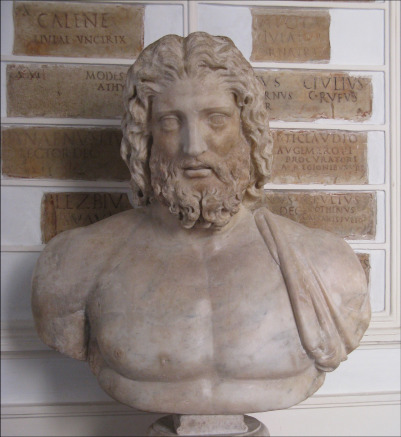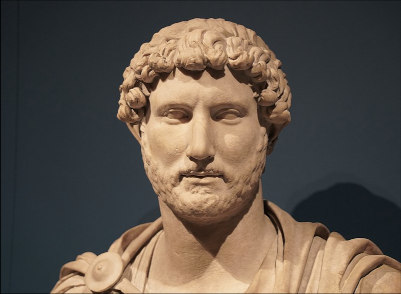Dating back to the year 800 B.C. Ancient Greece was the oldest civilization in Europe and its cultural achievements have remained influential on the continent long after the decline of the Greek civilization. The poleis Athína is considered to be the first Democracy in the world, even tough only men older than 30 years had the right to vote. These ideas were rediscovered many centuries later and evolved to the democracy of today, where the people have equal rights of participation and mostly rule via parliaments. Furthermore the foundations of modern mathematics, philosophy and poetry were laid by Greek thinkers. However most influenced by the culture of Ancient Greece was probably the Roman Empire that coexisted with the Hellenic Republic for almost 700 years and was quite close geographically.
Throughout the centuries, especially from 31 B.C. to 180 A.D. when Greece was part of the Roman Empire as the province “Achea”, the Romans copied big parts of the Greek arts, architecture and particularly the religion. The Roman religion was a polytheistic god system where every god ruled over a different field and was worshipped for its own characteristics, just like the Greek gods. Furthermore the Romans adopted the ways of worshipping their gods from the Greeks including sacrifices of animals and food. The head of the Greek gods is Zeus the god of lighting and the godfather. The Romans named him Jupiter but basically kept the same characteristics. Just like that every Roman god has a Greek equivalent. Poseidon, who is the god of the sea and brother of Zeus, is called Neptune by the Romans. The god Apollo has even been taken over with his Greek name although the Romans solely worshipped him for his healing capabilities. In conclusion the Roman religion was heavily influenced by the gods of the Greek pantheon. However unlike in Ancient Greece the roman gods were even a state religion in Rome which means it was mandatory for every citizen of the Empire and there was no freedom of religion.
In Rome the Greek polis had an excellent reputation as centers of science, philosophy and art. That’s why it was common for the Roman upper-class to learn the Greek language and to recruit Greek slaves as teachers. Also the Greek drama, that is known for plays by Sophocles, Aeschylus and Euripides, was quite influential on the development of the Theatre of Ancient Rome. Especially the use of historical themes and moral or didactic elements are believed to originate in the Greek example.

https://upload.wikimedia.org/wikipedia/commons/0/05/A_bust_of_Zeus.jpg

https://upload.wikimedia.org/wikipedia/commons/3/3c/Bust_of_Hadrian_from_Tivoli_125-130_AD_%2851234150499%29.jpg
Moreover the Greek architecture was quite popular in Rome as Greek-fashioned buildings with colonnades and a rectangular base like the Temple of Maison Caree could be found all over the city. Another example for the integration of Greek architecture is the famous Colosseum which was the location of the famous gladiator fights. Each level of the building displays the characteristic columns that are inscribed with the three Greek orders “Doric”, “ Ionian” and “Corinthian”. However Romans still developed their own architectural style for example by using concrete to build larger buildings and by creating new forms such as arches and domes. Greek sculptures were commonly found in public buildings and squares and many attempts were made to replicate Greek sculptures. But also sculptures from roman sculptors resemble the Greek ones so much that it is often impossible to tell the difference. Concluding it can be determined that Rome was heavily influenced by Greek culture and that it probably wouldn’t have become the same cultural without the Greek role model.
Sources: https://de.wikipedia.org/wiki/Antikes_Griechenland#Griechenland_in_klassischer_Zeit_(um_500%E2%80%93336/323_v._Chr.)

